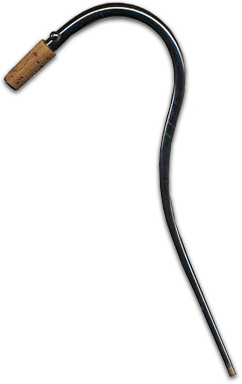Do you make copies of the CDs you record?
Yes, however these are limited to one copy per teacher or student. The copies are to be used for educational performance evaluation use only.
How do the recordings you make fit into the copyright laws?
When you obtain a recording from Rich Ervin Audio, it is essentially a contract between Rich Ervin Audio and the individual purchaser. The recording is provided solely for the purchaser’s personal performance evaluation. A quality recording is an invaluable learning tool, both for student and teacher, and provides a method for critiquing a performance. As for the actual recording of these works, because the performance itself is an extension of music education, or the demonstrated results of that educational effort, the principal of “fair use” would therefore apply.
The “Fair Use” Principle: Personal use of copyrighted works are generally allowed under the “fair use privilege” regarding copyrighted works. Fair use refers to an individual’s right to use copyrighted material in a reasonable manner without the consent of the copyright owner. In Sony v. Universal City Studios; the U.S. Supreme Court stated, “any individual may reproduce a copyrighted work for a ‘fair use;’ the copyright owner does not possess the exclusive right to such a use.”
In Section 107 of the US copyright law, it describes “particular work[s] may be considered “fair [use],” [when it involves areas] such as criticism, comment, news reporting, teaching, scholarship, and research. Section 107 also sets out four factors to be considered in determining whether or not a particular use is fair:
1. The purpose and character of the use, including whether such use is of commercial nature or is for nonprofit educational purposes;
2. The nature of the copyrighted work;
3. Amount and substantiality of the portion used in relation to the copyrighted work as a whole; and
4. The effect of the use upon the potential market for or value of the copyrighted work.
In an effort to comply with “fair use,” Rich Ervin Audio reserves the right to refuse a CD recording to any individual who does not qualify as being a participant in the particular music group, class, or ensemble, in the recording. Further, Rich Ervin Audio acknowledges that all works performed are the property of their respective owners. Based on these “fair use” provisions, Rich Ervin Audio does not knowingly or with intent, infringe on these rights, and uses every means possible to ensure this effort. Only one CD per student and educator will be allowed!!
COPYRIGHT NOTICE: The commercial use of live or studio performances, and/or the re-recorded and/or re-mastered recordings of copyrighted material requires the customer (or individual) to secure the appropriate licensing rights for commercial distribution, unless such material is the intellectual property of the performing artist. Rich Ervin Audio does not support infringement of these rights, and is not responsible for misuse of these rights by the end user.
Can a client sell the recordings made by Rich Ervin Audio?
Yes, but only if the proper mechanical licensing are paid for. Mechanical licensing (the right to duplicate a work recorded by your ensemble) can become very expensive due to the minimum copies requirement (see below).
The client must agree to pay the mechanical licensing fees before any copies are made or distributed. In order to easily license a single recording, the client may use the Harry Fox Agency, which is a company that specializes in licensing musical recordings.
The current mechanical licensing rate is about 9 cents per song under 5 minutes. A minimum of 500 licenses must be purchased in order to proceed. Regardless of whether you would like 10 copies or 100 copies, you must pay for 500 licenses for each song. At this rate, each song will cost the client $42.50. If you have a CD with 15 songs, the licensing fees would be $637.50. If any songs are over 5 minutes in length, the price goes up. Harry Fox also charges service fees on a per song basis (about $15/song). For more information on mechanical licensing and rates, visit the Harry Fox Agency website FAQ’s page.
In addition to the licensing cost, Rich Ervin Audio also charges CD duplication fees. This fee varies depending on what information you would like on the CD and CD jacket. The advantage to this method is that you would be able to commercially distribute the CD’s and potentially make a profit from the sale.

